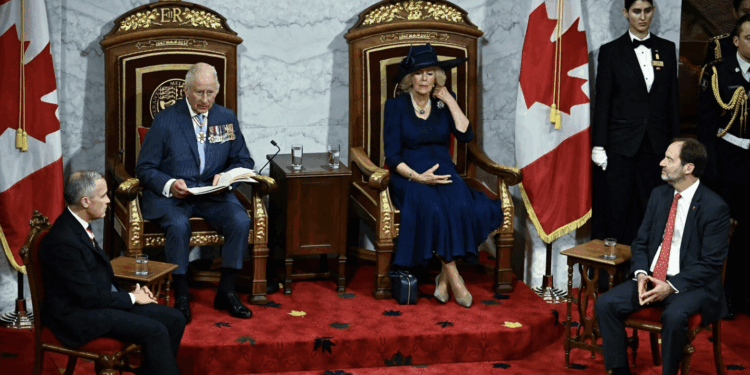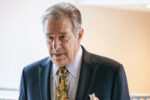King Charles III Subtly Pushes Back Against Trump-Era Expansionism During Canadian Address

Ottawa, Canada. During a formal address marking the opening of Canada’s new session of Parliament, King Charles III delivered remarks that, while diplomatic in tone, appeared to offer a pointed affirmation of Canadian sovereignty and democratic values in contrast to recent rhetoric from former U.S. President Donald Trump.
The King, who serves as Canada’s ceremonial head of state, emphasized the country’s commitment to democratic institutions, pluralism, and national identity. Though he did not reference Trump by name, his remarks came just days after the former president renewed controversial suggestions that Canada would be “better off” as the 51st state of the United States, statements that many Canadian officials and citizens have widely rejected as inappropriate and imperialistic.
“The ‘True North’ is indeed strong and free,” King Charles said, invoking a phrase from Canada’s national anthem. “Democracy, pluralism, the rule of law, self-determination, and freedom are values which Canadians hold dear and ones which the government is determined to protect.”
The comments were received by many as an implicit rebuke of Trump’s approach to foreign relations during his presidency, particularly his administration’s unpredictable and often confrontational stance toward key allies such as Canada. During his tenure, Trump imposes steep tariffs on Canadian aluminum and steel and repeatedly criticized Canadian Prime Minister Justin Trudeau, straining what had long been a close diplomatic relationship.
The King, who ascended to the throne in 2022 following the passing of Queen Elizabeth II, continued:
“Every time I come to Canada, a little more of Canada seeps into my bloodstream and from there straight to my heart. I’ve always had the greatest admiration for Canada’s unique identity, which is recognized across the world for bravery and sacrifice in defense of national values and for the diversity and kindness of Canadians.”
While largely ceremonial, the speech reflected growing international concern over the potential resurgence of Trump-era politics, particularly as the former president campaigns to reclaim the White House in the 2024 U.S. presidential election. Trump, now a convicted felon due to recent legal proceedings, continues to espouse an “America First” platform that critics argue undermines international cooperation and threatens global democratic norms.
Canada, a key member of the G7 and NATO, has historically been a strong ally of the United States but has also positioned itself as a defender of multilateralism, climate action, and humanitarian values. Many Canadians have expressed anxiety about the return of a Trump presidency, citing fears of renewed trade conflicts and a broader shift away from democratic principles.
King Charles, who has shown an increased willingness to engage with global political issues—including climate change, Indigenous rights, and constitutional values—seemed to echo these concerns with a broader warning:
“We must face reality: since the Second World War, our world has never been more dangerous and unstable. Canada is facing challenges that, in our lifetimes, are unprecedented,” he said. “Many Canadians are feeling anxious and worried about the drastically changing world around them.”
Though the speech was formally prepared by the Canadian government, it included personal remarks added by the King. Analysts note that the British monarch’s decision to affirm Canada’s sovereignty and democratic traditions was deliberate and significant, particularly given the rising tide of authoritarianism and nationalism in some corners of the global political landscape.
In response, Canadian officials have reiterated their commitment to defending the country’s independence, democratic institutions, and global partnerships. Prime Minister Justin Trudeau’s office declined to comment directly on Trump’s remarks, but a senior official described the King’s speech as a “powerful reminder of who we are, and what we stand for.”
While Charles’ role in Canada remains symbolic, his words have once again highlighted the ongoing tensions between liberal democracies and populist, anti-globalist movements. For Canadians and many watching from abroad the King’s message served not only as reassurance, but as a quiet yet forceful stand against any attempts to compromise the nation’s identity, autonomy, or values.






